News
-
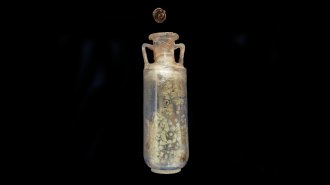 Archaeology
ArchaeologyAn old perfume bottle reveals what some ancient Romans smelled like
Chemical analyses reveal that an unopened flask of perfume from 2,000 years ago contained patchouli, a common ingredient in modern perfumes.
-
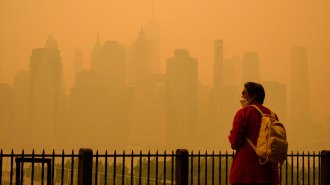 Climate
ClimateWildfire smoke is blanketing the U.S. East Coast. It won’t be the last time
Climate change will continue to exacerbate fire risk across the world’s boreal forests, making events like the dangerous smoke over the U.S. East Coast more common.
-
 Environment
EnvironmentRising groundwater threatens to spread toxic pollution on U.S. coastlines
Sea level rise is pushing groundwater into shallower layers of earth, threatening to spread hazardous chemicals from contaminated soils.
By Nikk Ogasa -
 Environment
EnvironmentSurviving a drought may help forests weather future dry spells
Climate change is making droughts more intense and frequent, but conifer forests have a trick up their sleeve, airplane and satellite data show.
-
 Planetary Science
Planetary ScienceJWST captured Enceladus’ plume spraying water nearly 10,000 kilometers into space
NASA’s James Webb Space Telescope reveals the rate at which Saturn’s moon Enceladus spews water and where that water ends up.
-
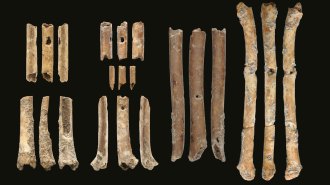 Anthropology
AnthropologyThese ancient flutes may have been used to lure falcons
Seven bird-bone flutes unearthed from a site in northern Israel are about 12,000 years old and may have been used as bird calls.
By Sid Perkins -
 Health & Medicine
Health & MedicineTaurine slows aging in mice. Will it ever work for people?
The amino acid taurine — found in meats, produced by the body and common in energy drinks — may have a role in health and aging, a new study suggests.
-
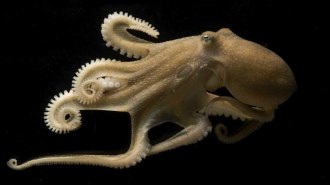 Animals
AnimalsRNA editing helps octopuses cope with the cold
California two-spot octopuses tweak the proteins they make, potentially to help maintain brain function when temperatures dip.
By Freda Kreier -
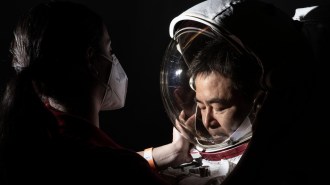 Neuroscience
NeuroscienceBrain cavities that swell in space may need at least 3 years to recover
MRI scans of astronauts show that duration in space and time between flights affect how much the brain’s fluid-filled cavities expand during missions.
-
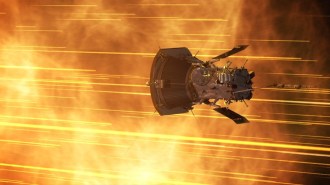 Astronomy
AstronomyThe Parker Solar Probe may have spotted the origin of high-speed solar winds
Kinks in the magnetic fields near the surface of the sun appear to be the cause of fast-moving flows in the solar wind.
-
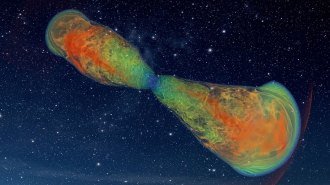 Astronomy
AstronomyA simulation of a dying star shows how it could create gravitational waves
Massive jets and an expanding cocoon of debris from a collapsing star could be a source of never-before-seen ripples in spacetime.
-
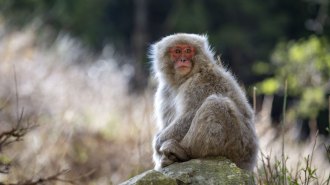 Animals
AnimalsWhen and why did masturbation evolve in primates? A new study provides clues
In a first-of-its-kind comparative study, researchers show that primates were masturbating 40 million years ago and that the behavior may help males keep their sperm fresh.